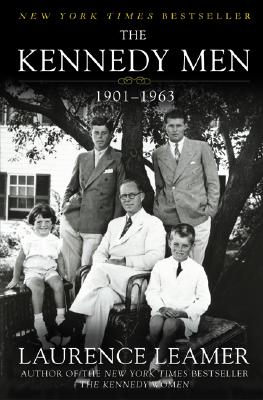Reader’s Notebook, 11/7/23

The Kennedy Men – Laurence Leamer
After about a month of reading, split into sections, I knocked out my Big Book for the fall.
A neighbor passed this to me over the summer. We were sitting on the porch having some drinks and somehow books or the Kennedys or something along those lines came up and she mentioned she had read this book and loved it. She offered it to me. I’m not one to turn down a book so I happily accepted. I was in the midst of a run of reserved library books coming in, so I let it sit on my bookshelf figuring I’d get to it eventually.
The book is subtitled “1901–1963: The Laws of the Father.” The first section was the hardest to get through, as it focused on the Kennedy family’s early history in America and then Joseph Kennedy’s childhood and rise to power. It was hard to get too interested in that part when I knew that there was much bigger stuff coming. It took me over a week to get through Book One, then I set it aside to knock out another book to reset my mind.
Section two begins just after Joe Kennedy Jr. is killed in World War II, with the family, especially his younger brothers, struggling to cope with their loss. John F. Kennedy was thrust into the role as anointed child, the one expected to fulfill all of Joseph’s grand plans. That section takes us through his first run for congress, election to the senate, and finally winning the presidency in 1960. Brothers Bobby and Ted are also covered, if not as in-depth as the future president.
Finally, section three is about the Kennedy presidency, with much time spent on the administration’s various battles over and with Cuba, and JFK and RFK’s uncomfortable relationship with the civil rights movement.
I feel like I know a lot about the Kennedys, so not much here was a true revelation. It was rather shocking, though, to see just how poor JFK’s health was his entire life, and how compromised he was in his final years. I knew he was a womanizer, as well, but the sheer number of women he “entertained” was pretty staggering. I mean, Bill Clinton got impeached over a relationship with one woman. JFK would have laughed at that had he still been alive in 1998.
All that underscored my biggest takeaway, which is you can’t hide anything anymore. JFK was a serial philanderer, suffered from a number of significant health issues, and was under the care of several doctors who used treatments and drugs that the Leader of the Free World probably should not have been using in the nuclear age. But the pubic knew very little about that, and the press, which did know, chose not to publicize it.
Compare that to today when we probably know far too much about our political leaders.
It was also fascinating to read about JFK’s leadership style. In college I learned all about his collegial method of coming to decisions. He believed that you surround yourself with the smartest people you can find, talk issues through from every angle, and then arrive at a decision. I knew less about what a pragmatic, centralist he was. He was suspicious of every political extreme, and worked hard to minimize both those on the far left and far right. That practical style of leadership may have prevented him from accomplishing more in his nearly three years in office. But it also likely was the key factor in avoiding nuclear war during the Cuban Missile Crisis.
Like politicians of today, he always had his eye on the next election. But he also had a special gift for seeing through the emotions of a moment and identifying pitfalls others couldn’t see, as well as paths towards compromise that would neuter his opponents in the process.
The book was a bit of a chore to get through, more because of Leamer’s writing style, than its length. I’m guessing his technique was typical of how some biographies used to be written (this was published in 2001). He had a tendency to overwrite, with most sentences stuffed with too many $1000 words. Here are a couple examples that I noted.
“Kennedy treated gossip like chocolate bonbons, a pleasant little addiction he enjoyed tasting several times a day.”
“The youths dressed up in ersatz adulthood on their forays into the Manhattan nightlife, acting with the nonchalance of the regular habitués.”
He also referred to cheating men like JFK as “swordsmen” far too often. That term has always given me the creeps for some reason.
Anyway, the Kennedys are endlessly fascinating, so while this sucked up most of a month of reading time, it was not a waste even with some stylistic hurdles along the way.